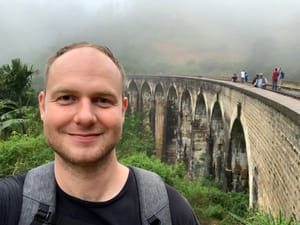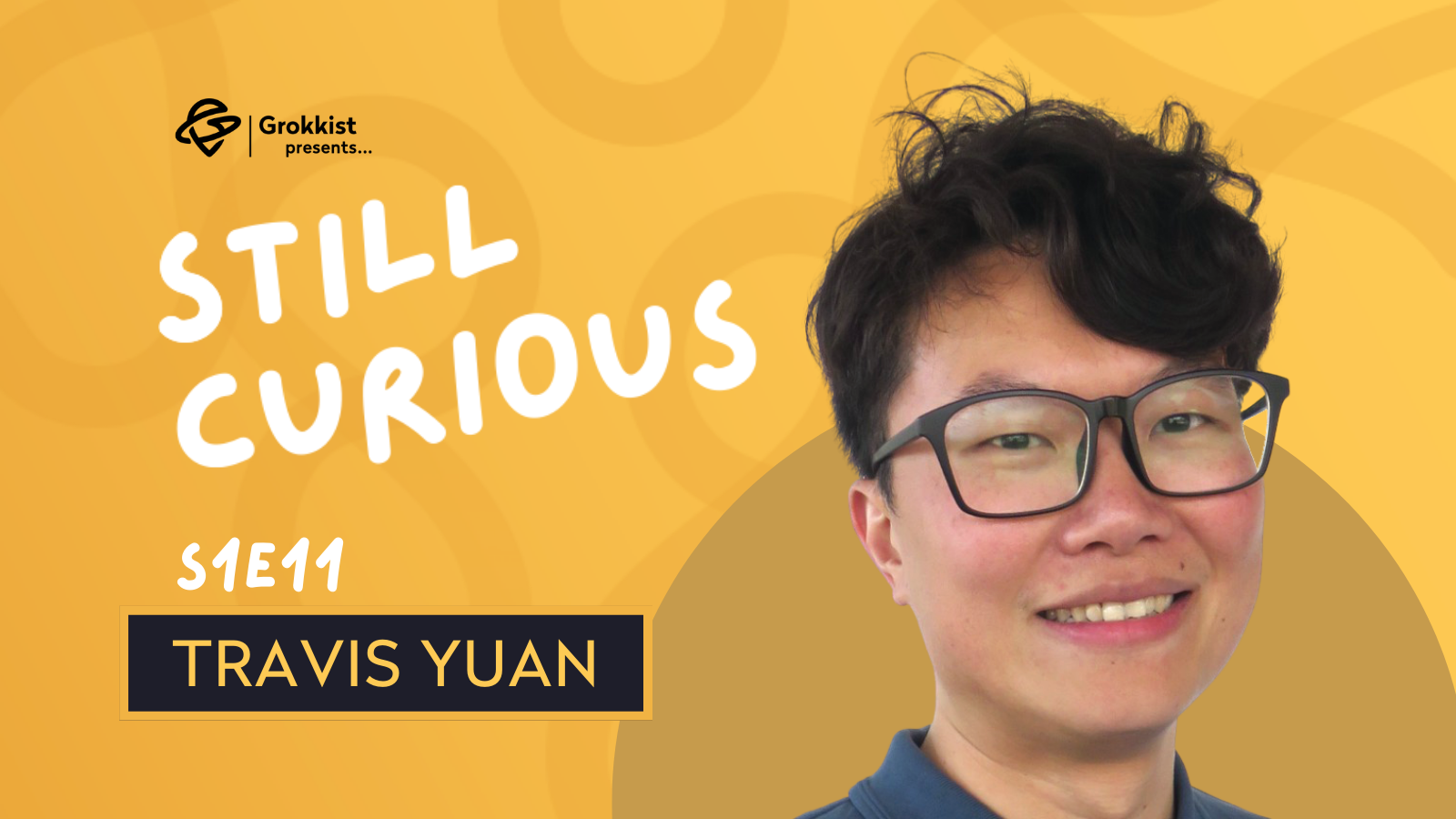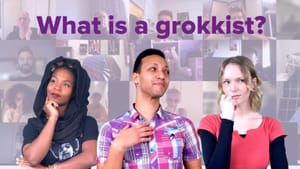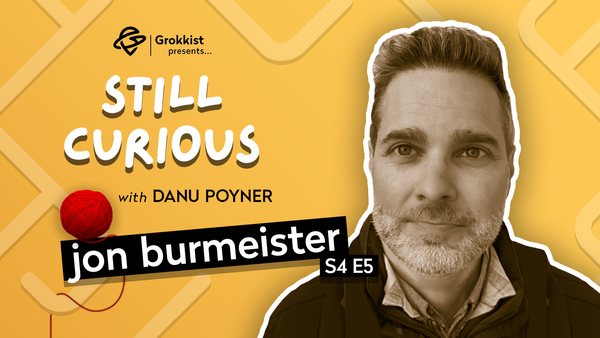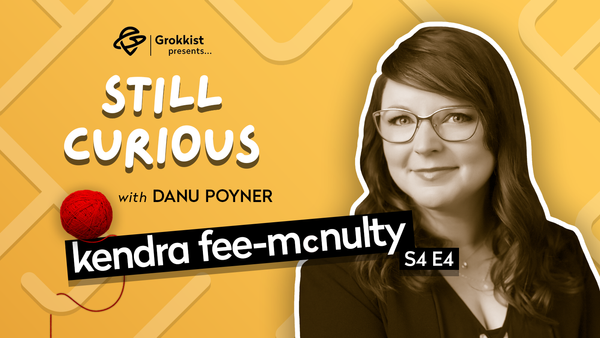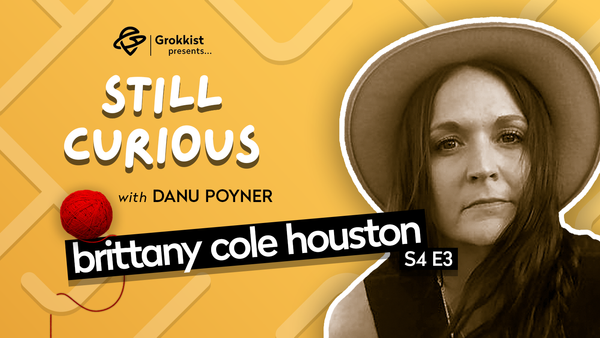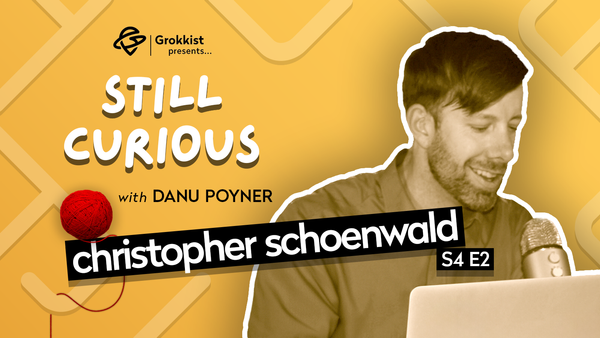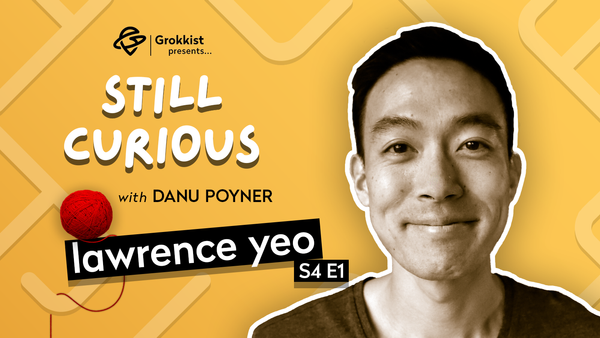Listen Now
About the Episode
Key topics
- What happens in a special needs classroom and why every day is about both careful planning and also throwing the plan away most days
- How Travis helps kids learn and grow through play and how he gets to know them by exploring their interests together
- What Travis has learned by migrating from Taiwan to New Zealand and why he made sure he was a top student all the way through school in Taiwan so he could get out of the system as soon as possible.
Detours and tangents
- Why Travis left early childhood teaching to become a flight attendant and how he celebrated a 50-hour birthday across timezones and continents
- Travis' many hobbies, from making his own clothes to learning new languages to connect with far-flung friends and relatives
Recorded 16 November 2021
Episode Digest
Travis' squiggly career
- Teaching was always Plan A for Travis. “I can't tell you why, but that's the only thing I wanted to do when I was a child.” In kindergarten he told his mum “I am going to be a teacher” and would play by pretending to teach the stuffed toys.
- Growing up in Taiwan, Travis’ chafed against the prevailing culture. “You listen to the teachers. You listen to your parents, you do what they want you to do.” He thought of himself as a creative person who likes to explore and is open to learning and trying different things. He liked singing, painting, drawing, making his own clothes and even hair styling. “I did my own haircut at school, because I didn't think anyone would do it the way I want it. So I started developing these skills to kind of cater to my own needs.”
- Doing what he needed to do at school gave Travis the freedom later to to be left alone. “I was the top student all the way through. I figured out that's the only way I can actually get out of the system as soon as possible. To do well at school so no one will actually bother me. and instead let me do what I want to do.”
- Travis had always been keen on improving his English. He did a social studies major and became an English teacher in Taiwan. He wanted to live in an English-speaking country so he could teach people to speak English in a way that was more real and appropriate than what was in the textbooks. He went to New Zealand for a holiday in his second year of uni and really enjoyed it. “I met great people. My host family was amazing. I made really good friends. So I thought I could come back to do something.”
- Travis went back to New Zealand and studied early childhood education. “I realised I don't need to limit myself or the students to do what the society wants them to do, wants them to be or achieve certain things at a certain age. I realised I can do everything the opposite way of my experience growing up. My parents will be upset listening to this, but I remember that I was not allowed to be messy at school. So when I first worked in an early childhood centre I let the students be messy during art activities. I remember I was told to draw or create certain things that a teacher wanted me to do when I was a kid. So I let my students draw what they wanted to create and everyone was happy and learning and everything was fine. It's not the end of the world. And I just liked the feeling of that.”
- Travis enjoyed the early childhood education principle of observing the students and then extending their learning based on their interests. This made intuitive sense to him, but as he gained experience working in several different ECE learning centers, he became frustrated being around colleagues who would observe the students play without putting the effort in to extend and guide their learning. “Some people would just observe the children, get to know them and then stop. They did not extend. They did not plan anything for the students to grow based on their interests. That's what they believed was open ended learning. After a while, I just thought, if you call yourself a teacher, you should provide the opportunity for them to actually explore as much as they can. You don't just watch them.”
- Disillusioned, Travis wanted to get out of early childhood education. “I happened to talk to someone at a birthday party who used to work for Air New Zealand and we were talking about visiting my family in Taiwan. I said I hadn’t had many chances to go In the past few years and he suggested that I should try to join Air New Zealand’s cabin crew so I can visit them. I didn't take that seriously until a few days later he sent me a link to the ad. I thought it wouldn't hurt if I just filled out the form and I did. I had to go through four rounds of interviews after filling out the form. I didn't expect to get a job - I have a fear of flying! I was trying to just get out of what I was doing so I just kept doing what they asked me to do and eventually I got it.”
- Travis was happy to take the cabin crew job to push himself out of his comfort zone, especially as he had a limited social circle with the teaching job. He wanted to see if he could actually communicate with people that he didn't know. “It did help me actually. Two weeks after I started flying I remember chatting with an Uber driver. I was with my sister and she was like ‘wait, what are you doing?’ I just naturally started talking to everyone. It helped me jump out of my comfort zone and I became more sociable, I guess.”
- Covid eventually put a stop to Travis’ flying career. His passion for teaching hadn’t gone away, but he didn’t want to return to early childhood education, so when an opportunity came up in a special school, he took it, even though he was a bit daunted by the prospect. “As a preschool teacher, we always had one or two students with special needs in the class. But I didn't know what it would be like to work in a school where they are all students with special needs.”
- Travis found his early childhood education experience helpful when designing holistic personalised learning programs for his special needs students. “For me the most important thing is to build relationships with them. Even for mainstream students, the relationship is important because it doesn't matter how good you are as a teacher, if no one wants to be around you or is curious about what you're doing, they're not going to learn anything. So especially these students who have emotional and behavioural issues, they want to feel comfortable and be in a familiar environment. If you don't have a good relationship they won’t even get close to you. I have a student in my class who is physically capable and academic, he just can't talk that much. But he shows us his interests. A few weeks ago, he was singing the songs of different film production companies and writing their names, like Dreamworks Columbia. We were shocked because we had no idea that he knows how to write. So I just built on that. I start printing out movie posters with the names of the production companies, and he started doing tracing and watching a video on YouTube about those movies. And then I teach him how the alphabet works while he was writing. I'm not asking him to memorise all the letters, but he was gradually remembering what the words say and how to spell them.”
- Travis recently became a team leader at his special needs school. “I do not consider myself a leader who tells people what to do. I like to encourage people and create an environment where everyone works collaboratively. So I thought that would be another opportunity for me to push myself out of that comfort zone and share my professional knowledge with others. I like to get everyone to work together and I will be a facilitator. I get inspired by the people in my team and they can be inspired by me, I’m hoping.”
The Red Thread
- Travis is excited by seeing people grow. “I just enjoy helping others. I like to see how students grow or learn something new. Education is a very important thing everywhere. It's not business, it's not something that you make money out of. It's more like developing people for a country, for the society, for the environment.”
- Travis is a very organised person who became good at exploring his interests and developing skills that cater to his own development. He takes responsibility for helping grow those who can benefit most from guidance or who may not be able to do it themselves. “Children, they need people to guide them. If you call yourself a teacher, you should provide the opportunity for them to actually explore as much as they can. When people grow up to a certain age, everyone is pretty much the same, it's not that important after a while.”
- Travis is fiercely independent but also collaborative and humble. “When it comes to my own issues, I tend to listen to myself, but professionally I always say to people I'm a better follower than an initiator.”
- Travis is patient with people and does not give up on them. He is persistent without expectation. “You don't actually need to rush or try to get them to do what you expect them to do. You just keep doing it. One day, you will see the progress and then you move on.”
Synthesising for strength
- Travis finds his experience in early childhood education really helps when teaching in a special education primary school, even though teacher training in primary education is very different to early childhood teacher training. “The students I work with, their development is obviously a few years behind or delayed, which puts them in the early childhood stage. You still need to build relationships and find their interests to know how you can help them. So it's pretty much the same, but in the primary school setting, you also need to bring academic aspects into the whole.”
How Travis likes to learn
- Travis looks for opportunities for life-changing experiences that will take him outside his comfort zone while extending his expertise. On different occasions this has led him to move from Taiwan to New Zealand to immerse himself in an English-speaking country, to become an airline cabin crew attendant to improve his social skills, and to become a team leader to be able to share his knowledge.
- He develops skills to cater to his own needs and interests, for example learning how to style his own hair because he doesn’t believe anyone else will be able to do it the way he likes it.
- Travis learns about people through building trust relationships with them, and will learn new things to be able to better connect with them and adapt to their way of doing things. “When I was a kid, I thought if I could talk to most of the people in the world, that would be a very cool thing. So I checked - Mandarin, English, and Spanish are the three most spoken languages. I already know two, why don't I learn Spanish as well? I can give it a go. I'm learning Russian at the moment so I can try to create some more connection with my half-Taiwanese half-Russian nephew.”
Reflections on practice
- On the difference between special needs students and mainstream students: “Most have emotional and behavioural issues or shorter concentration spans. They can’t control their emotions when things don't go their way, so I just need to find out how long they can actually focus on engaging one thing, then they just need a break in between activities before they have a tantrum. You just need to figure out how everyone works.”
- On classroom management in a special needs setting: “It’s trying to find a balance between what they want to do and what we want them to do. I have a student who is sensitive to noises and I have another student who screams whenever he's angry or upset. And whenever the screamer screams, that will set the others off. It’s not only the two of them. I also have one who just shouts whenever he's happy or for no reason, and one who'll cry whenever he doesn't want to do what he's asked to do. These four people, they set each other off constantly every day. So what we need to do is to try to minimise or reduce the time they actually scream or shout or cry, to try to keep the whole classroom calm.”
- On getting to know special needs students: “The first thing is observation. You help the student to find their personality, their interest and their behaviours or habits, like eating, learning how they play, how they react to instructions. When I was working as a preschool teacher we usually spent a month, usually four to six weeks to observe just one student and find out what they are really interested in doing and learning before we plan anything for them.”
- On intentional planning vs pure play: “The teachers still need to do intentional planning. We're not talking about putting toys on the table for them to play with and that's it. There will be a reason why you do things with the student. So building legos, it might be the language that you use during the activity, or you show them photos of the structures for them to copy. That’s all something where they can actually learn and decide whether they want to go further or not. But if you just dump a basket of blocks on the table for them to do whatever they want, that's not an intentional planned experience.”
- A story Travis is proud of: “I had two non-verbal students joining my class at the beginning of the year who had never spoken before. I just train them to recognise their names, the letters, I don't do anything further than that. I just keep doing the same thing over and over again, matching letters in their names, reading the same books over and over again and teaching them how to communicate using signs and visuals. And one of them one day suddenly pointed to the word on the sign and said ‘I need some food’. He said it with words, and he spelled his name. He's got a really long name, but one day he just did all the matching himself and started spelling his name whenever he sees it. I did not expect that at all. I told his mother what's happening at school. She got emotional and teary because she did not think we were talking about the same child. I was really proud of that because I did not expect this person to be able to actually talk at all.”
- On taking responsibility for your own experience: “I just hate people telling me ‘I don't know’, and ‘I can't do anything about it’. Maybe in some situations you really can't do anything about it, it's out of your control, but I just don't believe those people who say ‘I don't know’. You do know, you just need to think harder.“
Stuff We Mentioned
Organisations
Audio Highlights
Episode appetiser - Travis talks about a non-verbal student who eventually talked in his class (16 sec)
0:00
/0:16
Travis explains special needs education to a 10-year-old (51 sec)
0:00
/0:51
The life-changing learning experience Travis would gift someone (30 sec)
0:00
/0:30
A small glimpse into the everyday reality of a special needs classroom (55 sec)
0:00
/0:55
On doing well at school as a way to get out of the system as soon as possible (34 sec)
0:00
/0:35
About Travis Yuan

Travis Yuan is a special education teacher based in Auckland, New Zealand. Travis migrated from Taiwan and trained as an early childhood educator before later moving into special education.
Connect with Travis
Interactive Transcript
Note: This is a machine-generated transcript and may contain errors.

